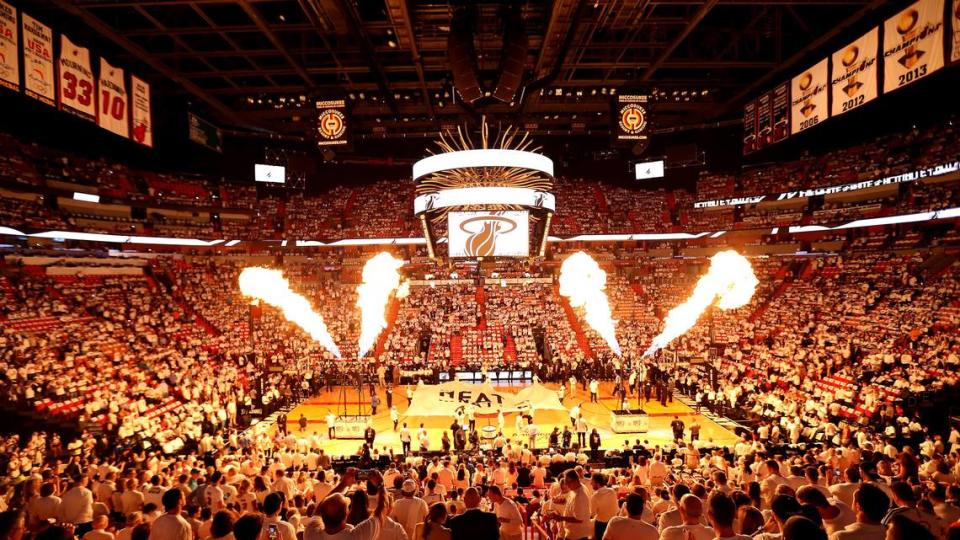What are the Miami Heat’s options to add via the buyout market? Here’s an explanation
- Oops!Something went wrong.Please try again later.
While the Miami Heat has already exceeded the salary cap, it has a few options to turn to if it chooses to make an addition via the buyout market this season.
Among potential buyout candidates are Detroit Pistons forward Blake Griffin, Cleveland Cavaliers center Andre Drummond and Oklahoma City Thunder forward Trevor Ariza. Griffin and Drummond are being held out of games as their teams work to trade them before the March 25 trade deadline, but buyouts are possible with both players because the remaining salary on their contracts could make it a challenge to find a trade.
In addition, Shams Charania from The Athletic reported Saturday night that Houston Rockets center DeMarcus Cousins is moving toward a buyout in the coming days. The Heat has shown interest in Cousins in the past, but has never been able to acquire him.
Heat Check newsletter
Want to stay up-to-date on the Miami Heat? Get the latest news, game results, analysis and insider information in your inbox from Monday through Friday during the NBA season.
What can the Heat offer players who become available on the buyout market?
The Heat does not have cap space but it has a few exceptions to work with, including a $3.6 million biannual exception and possibly a $4.7 million disabled player exception after center Meyers Leonard recently underwent season-ending shoulder surgery. Miami can also add a free agent using the minimum salary exception.
The $4.7 million disabled player exception would be the Heat’s biggest asset in its potential pursuit of a free agent this season. Miami has applied for the disabled player exception, but the team was still waiting to be formally granted the exception by the league as of Saturday.
The disabled player exception of $4.7 million that the Heat applied for is worth half of the disabled player’s salary, which in this case is Leonard’s $9.4 million salary for this season.
If granted, the disabled player exception can be used by the Heat to sign a free agent on a salary up to $4.7 million for the rest of the season, to trade for a player in the final season of his contract worth $4.7 million or less, or to claim a player on waivers who is in the final season of his contract worth $4.7 million or less.
Teams have until April 19 to use the disabled player exception. Miami is permitted to use it and still keep Leonard on its roster.
If granted, why is the disabled player exception the Heat’s most likely route to making an addition via the buyout market? Obviously, it’s the exception that allows Miami to offer the most money.
But also if the disabled player exception is not used before the April deadline, the Heat loses it.
Meanwhile, the biannual exception can’t be used in consecutive seasons. So, not using the biannual exception this season would keep it available for the 2021-22 season.
The biannual exception also begins to prorate downward daily starting on Feb. 27 this season, according to ESPN analyst and former Nets executive Bobby Marks. The disabled player exception does not get prorated down.
The Brooklyn Nets ($5.7 million disabled player exception) and Golden State Warriors ($9.3 million disabled player exception) each hold larger disabled player exceptions than the Heat, but both the Nets and Warriors are also already in the luxury tax.
Winning would also help the Heat become an attractive destination for those who are bought out. A player who gives up salary to become a free agent is usually looking to sign with a team that could make a deep playoff run.
None of these exceptions push the Heat past the luxury tax line of $132.627 million, with the team currently about $8 million away from that threshold.
April 9 is the last day for a player to be waived and still be eligible for the playoffs with another team this season.
But it’s important to note that the Heat would have to trade or release a player to open a roster spot for a free-agent addition, whether its via the buyout market or not. Miami currently has the league-maximum of 15 players signed to standard deals on its roster.


